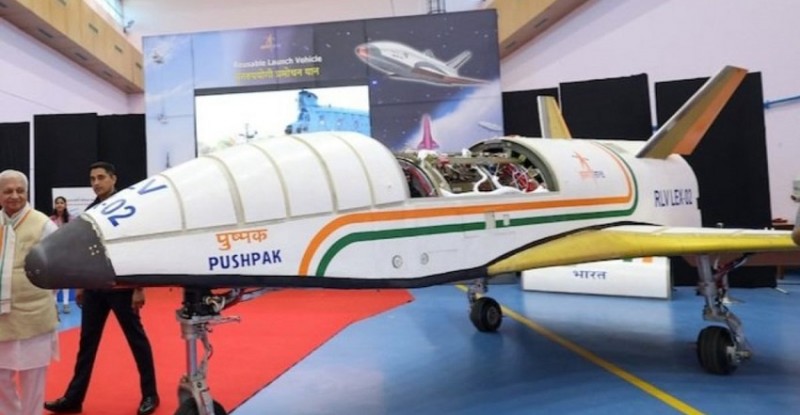
India's space agency, ISRO, has achieved a remarkable feat in reusable launch vehicle technology with the triumphant landing experiment of RLV LEX-02. This milestone, conducted at the Aeronautical Test Range in Chitradurga, Karnataka, signifies a significant stride in the development of reusable launch vehicles (RLVs).
The RLV LEX-02 mission, dubbed Pushpak, showcased the autonomous landing capability of the reusable launch vehicle under challenging conditions. Lifted by an Indian Air Force Chinook helicopter and released from an altitude of 4.5 km, Pushpak maneuvered its way to the runway, making precise adjustments for cross-range deviations before landing autonomously. The successful landing was facilitated by a combination of brake parachutes, landing gear brakes, and a nose wheel steering system.
"This mission successfully simulated the approach and high-speed landing conditions of an RLV returning from space," stated ISRO. The accomplishment not only demonstrated ISRO's indigenous technologies in navigation, control systems, and landing gear but also validated the agency's capability to perform high-speed autonomous landings of space-returning vehicles.
The mission, carried out by the Vikram Sarabhai Space Centre (VSSC) in collaboration with the Liquid Propulsion System Centre (LPSC) and the ISRO Inertial Systems Unit (IISU), is a progression from the previous RLV-LEX-01 mission. Notably, all flight hardware and systems utilized in RLV-LEX-01 were reused in this mission after thorough certification, showcasing the reusability potential of flight components.
To withstand higher landing loads, the airframe structure and landing gear were reinforced based on insights from the RLV-LEX-01 mission. ISRO chairman S Somanath commended the team for the flawless execution of this intricate mission.
Dr. S Unnikrishnan Nair, Director of VSSC, emphasized that ISRO's repeated success in mastering terminal phase maneuvering, landing, and energy management in fully autonomous mode is pivotal for future endeavors in space exploration.
ISRO's relentless pursuit of developing crucial technologies for fully reusable launch vehicles aligns with its mission to facilitate low-cost access to space. This achievement underscores India's dedication to advancing space exploration through innovative technological advancements and successful mission executions.
Space One Kairos Rocket Explodes During First Flight Attempt
Russian astronauts used to carry a gun with them, what is its use in space?